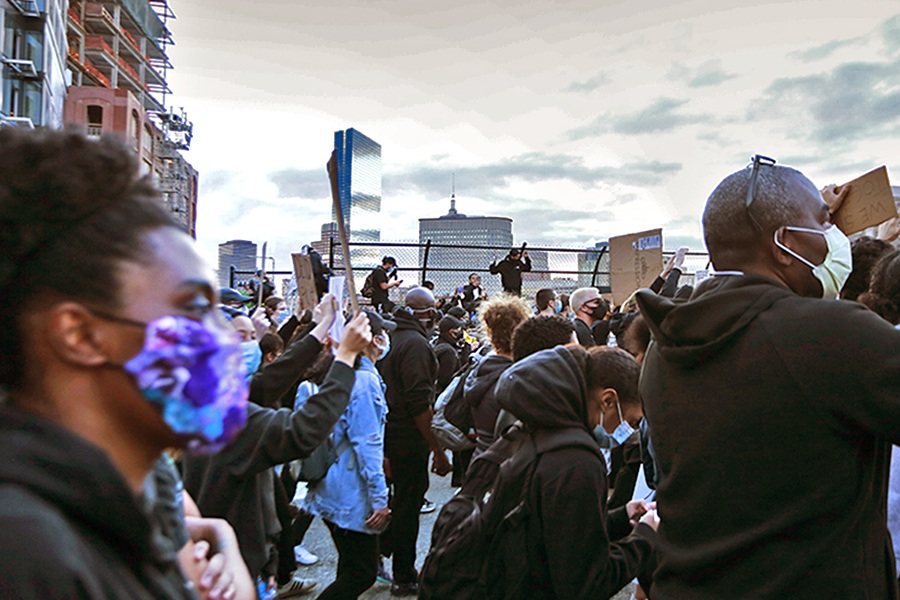As Protests Continue, Health Officials Advise Activists: Keep Masks On
Here's how protesters can do their best to stay safe during the coronavirus pandemic.

Photo credit Amanda Lucidi
The total number of coronavirus cases as of Sunday, when protesters gathered in crowds across the city to protest the death of George Floyd, reached 96,965 and claimed another 78 lives, raising the death toll to 6,846.
During the night, as peaceful protests turned chaotic in Boston, the streets of Downtown Crossing and Back Bay saw more cars, traffic, and people than they have in months due to the pandemic and quarantine restrictions. Dr. Eleanor Murray, an epidemiologist at Boston University, says that while the protests are happening for good reason, it doesn’t lessen the threat of transmission of the COVID-19 virus—which disproportionally is also affecting more communities of color. To lessen the threat of infection while protesting, she advises continuing to wear a mask. “Obviously, during a protest, there is a lot of yelling, so the chance for droplets to spread farther is increased,” she says.
In addition, if it’s possible, try to maintain distance from others outside your group of protest buddies, she adds. “There are certain times when there’s no choice, but do your best.” This is likely the first time in about three months people have come in contact with so many other strangers. “We know now that the greatest risk of infection is from gatherings of large groups and from being indoors,” Murray says. “Outdoors seems to be less risky.”
Finally, Murray recommends that if you’ve been out protesting, do your best to self-quarantine for 14 days after you have been exposed to the crowds to prevent the spreading of any possible contamination. “The most risky thing you could do, obviously, is protest and then visit an elderly relative or friend,” she says.
But community spread isn’t the only risk—other public health officials, according to New York magazine, are concerned that the increased stress and lung damage from tear gas could make people more susceptible to COVID.
If you’re in a position where you want to help the cause, but getting to a protest isn’t possible, Murray recommends donating your money to organizations like the Massachusetts Bail Fund and the Minnesota Freedom Fund. Other organizations include Black Lives Boston, Know Your Rights Camp, and the Committee to Protect Journalists. And endeavor to directly support black-owned businesses in Boston as coronavirus restrictions continue to lift.


